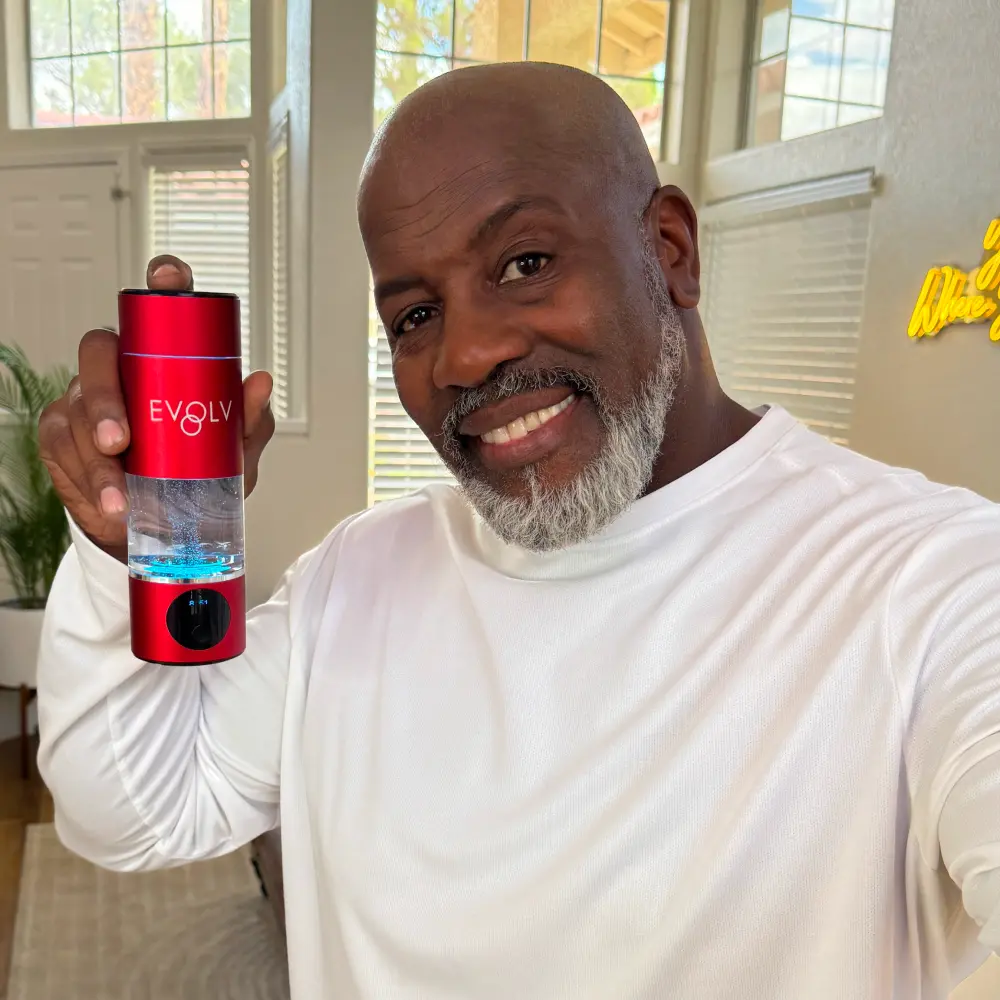
As the world becomes more health-conscious, many people are exploring different types of water to boost their well-being.
One question that often arises is: Filtered Water vs Hydrogen Water bottle: Which is better for you?
This blog will delve deep into the nuances of these water types, focusing on their differences.
We will discuss the benefits of each option, including their pricing options.
Hydrogen water is swiftly gaining traction, and we’ll explore why.
By examining the importance of hydrogen concentration, we’ll clarify the value each type offers.
Finally, we’ll highlight the certifications that back these products.
What is Filtered Water?
Filtered water is essentially tap water that has gone through a filtration system to remove impurities.
This process typically eliminates contaminants like chlorine, heavy metals, and bacteria, making the water safer for consumption.
Filtered water also tends to improve the taste by removing chemical odors and flavors.
Despite its popularity, there is a growing debate: Filtered Water vs Hydrogen Water in terms of health benefits.
Many people appreciate filtered water for its affordability and accessibility.
However, while it makes water cleaner, it doesn't add any additional health benefits beyond basic hydration.
Thus, the discussion often pivots on what you actually gain from your chosen water type.
What is Hydrogen Water?
Hydrogen Water For Clear Mind, on the other hand, is simply water infused with additional molecular hydrogen gas.
This type of water is gaining attention for its potential health benefits, which are attributed to its antioxidant properties.
The real point of contention when discussing Filtered Water vs Hydrogen Water is the added molecular hydrogen in the latter.
This infusion process is what sets hydrogen water apart from filtered water.
More than just hydration, hydrogen water aims to boost everyday wellness.
It's important to note, though, that the concentration of hydrogen — measured in parts per million (PPM) — is crucial.
For any potential benefits, the hydrogen concentration must be at least 3PPM.
What is the Science Behind Hydrogen Water?
The potential benefits of hydrogen water are tied to its molecular composition.
MolecularHydrogen Water For Strength Training is a tiny molecule that can penetrate cells and potentially reduce oxidative stress.
In the debate of Filtered Water vs Hydrogen Water, this cellular interaction is a game-changer.
Studies suggest that hydrogen water can support wellness by possibly boosting energy and focus.
However, hydrogen water's effectiveness is contingent upon its PPM levels.
At least 3PPM is necessary to ensure that enough molecular hydrogen is absorbed to exert its effects.
This is why choosing a high-quality hydrogen water bottle like the EVOLV H2GO is essential.
Concentration Matters: Why at least 3PPM?
When selecting a hydrogen water product, PPM is a critical factor.
Many products on the market fail to deliver an adequate dose, leading to negligible effects.
Consuming hydrogen water with a concentration of at least 3PPM ensures that an adequate amount of molecular hydrogen is delivered to the body to potentially exert its beneficial effects.
Therefore, aiming for a concentration of at least 3PPM ensures a more substantial intake of molecular hydrogen for potential health benefits.
This criterion has become a benchmark in the Filtered Water vs Hydrogen Water debate.
By ensuring a proper concentration, consumers can maximize the health-boosting potential of hydrogen water.
It's essential to scrutinize product labels and certifications for PPM accuracy.
Certifications: Ensuring Quality and Safety
Certifications play a vital role in verifying the quality and safety of hydrogen water products.
EVOLV H2GO stands out with several key certifications, setting it apart in the Filtered Water vs Hydrogen Water discussion.
The product is IHSA-certified, ensuring it meets rigorous hydrogen standards.
Our product has also been tested by H2 Analytics, confirming its compliance with IHSA standards.
SGS testing further guarantees that the water is free from harmful contaminants.
Additionally, being US EPA certified underscores its adherence to environmental safety standards.
These certifications provide consumers with confidence and assurance in the product's quality.
Benefits of Hydrogen Water
1. Antioxidant Properties
Hydrogen Water For Agility Training is renowned for its potential antioxidant properties, which may help combat oxidative stress in the body.
Unlike regular filtered water, hydrogen water contains molecular hydrogen, a potent antioxidant.
This antioxidant activity highlights the key differences in the Filtered Water vs Hydrogen Water debate.
By neutralizing free radicals, hydrogen water may support overall cellular health.
This potential benefit is why many health enthusiasts gravitate towards hydrogen water.
Although further research is needed, the possibility of reducing oxidative damage is promising.
2. Potential Energy Boost
Many individuals report feeling more energized after consuming hydrogen water.
The presence of hydrogen may help improve energy levels by supporting cellular functions.
This potential energy boost is a point of discussion in the Filtered Water vs Hydrogen Water analysis.
While filtered water hydrates, hydrogen water might enhance energy production at the cellular level.
This makes it an attractive option for athletes and active individuals looking for a natural energy lift.
However, it's important to approach these claims with a balanced perspective.
3. Enhanced Focus and Clarity
Some users of hydrogen water have noticed improved focus and mental clarity.
This cognitive benefit is another distinguishing factor in the Filtered Water vs Hydrogen Water comparison.
By potentially supporting brain function, hydrogen water may assist in maintaining mental sharpness.
This is particularly appealing for those with demanding mental tasks or seeking an edge in cognitive performance.
Although anecdotal, these reports contribute to hydrogen water's growing popularity.
More research is needed, but early indicators are promising.
4. Workout Recovery Support
Hydrogen water may aid in workout recovery thanks to its potential anti-inflammatory effects.
Athletes often explore Filtered Water vs Hydrogen Water for post-exercise recovery solutions.
The additional hydrogen might help reduce muscle fatigue and soreness.
This potential benefit aligns with the needs of those leading active lifestyles.
While more studies are necessary, hydrogen water offers a novel approach to recovery.
Its growing adoption in fitness circles underscores its potential advantages.
5. Improved Hydration
One of the most straightforward benefits of hydrogen water is enhanced hydration.
Hydrogen's ability to penetrate cells may facilitate better water absorption.
This makes hydrogen water a contender in the Filtered Water vs Hydrogen Water debate.
While both water types hydrate, hydrogen water might offer superior cellular hydration.
This could be particularly beneficial in hot climates or during intense physical activity.
Proper hydration is fundamental to maintaining overall health and well-being.
FAQs
What makes hydrogen water different from filtered water?
Hydrogen water is infused with molecular hydrogen gas, setting it apart from regular filtered water.
This infusion is believed to offer additional health benefits, such as antioxidant properties.
In the Filtered Water vs Hydrogen Water discussion, this molecular difference is crucial.
Filtered water, while clean, does not provide these potential health benefits.
Therefore, hydrogen water is often chosen for its extra health-boosting characteristics.
Why is the concentration of hydrogen important?
The concentration of molecular hydrogen in hydrogen water directly impacts its effectiveness.
For any potential benefits to be realized, the hydrogen concentration must be at least 3PPM.
This concentration is a key point in the Filtered Water vs Hydrogen Water debate.
Lower concentrations may not deliver enough hydrogen to produce noticeable effects.
Ensuring a minimum of 3PPM is essential for maximizing potential health advantages.
Are there any safety concerns with hydrogen water?
Hydrogen water is generally considered safe when consumed within recommended limits.
The certifications from IHSA and US EPA further attest to its safety.
In the Filtered Water vs Hydrogen Water analysis, safety remains a primary concern.
EVOLV H2GO products undergo stringent testing to ensure they meet safety standards.
Consumers should always choose certified products to avoid potential risks.
How does EVOLV H2GO ensure quality?
EVOLV H2GO maintains high quality through rigorous testing and certifications.
It is IHSA, H2 Analytics, and SGS certified, ensuring adherence to industry standards.
This commitment to quality distinguishes it in the Filtered Water vs Hydrogen Water debate.
By surpassing regulatory requirements, EVOLV H2GO delivers a reliable product.
This dedication provides consumers with assurance and confidence in their choice.
Can hydrogen water replace regular water intake?
Hydrogen water can complement regular water intake but should not entirely replace it.
While it offers potential health benefits, it should be part of a balanced hydration routine.
In the Filtered Water vs Hydrogen Water comparison, balance is key.
Hydrogen water can be integrated into daily hydration but should not exclude traditional water.
Maintaining diverse hydration habits ensures optimal health and well-being.
Conclusion
In summary, the debate Filtered Water vs Hydrogen Water highlights the unique qualities and potential benefits of each.
While filtered water is essential for safe, clean hydration, hydrogen water offers added potential health advantages.
The molecular hydrogen in hydrogen water may provide antioxidant properties, enhanced energy, and better hydration.
However, these benefits are contingent upon adequate hydrogen concentration, emphasizing the importance of choosing products like EVOLV H2GO.
Certified and tested, EVOLV H2GO stands out as a trustworthy choice for those considering hydrogen water.
As always, consumers should remain informed and critical when selecting water products to ensure they meet their health goals.









